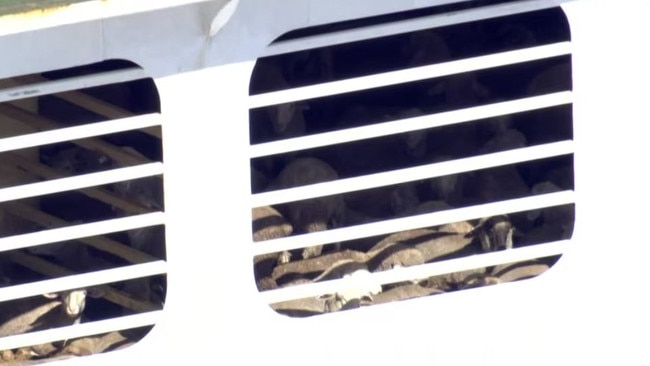Israeli court action scuppered sheep shipment plans
The federal government rejected the re-export bid of a live sheep vessel after animal welfare activists challenged the shipment in the Israeli courts.

The bid to re-export more than 14,000 sheep to Israel after the shipment was delayed by rebel attacks was rejected by the Australian government over concerns that animal welfare activists’ legal challenges in the Israeli courts would prevent the country from accepting the livestock on-board.
After a month at sea, all sheep and cattle aboard the livestock carrier were this week unloaded in Western Australia.
A statement of reasons released by the government shows activist groups appealed to the Department of Agriculture, Fisheries and Forestry to reject the attempt to re-export the stock, including alerting the government to legal challenges by Israeli animal welfare organisations.
The injunction applications in the Israeli District Court formed the basis of the reason the department ultimately rejected the export bid, despite the decision-maker’s belief that the sheep and cattle on-board were in good health and prepared for the extended journey.
Of the approximately 14,000 sheep aboard the ship, 64 died during the stalled voyage, a mortality rate of about 0.45 per cent, the department revealed.
Four of the 2000 cattle on-board died aboard the MV Bahijah, which was also significantly below the level at which mortalities need to be reported to the government.
The remaining livestock were unloaded from the ship at Fremantle earlier this week and taken to an “appropriate premises” in Western Australia, the department said in a statement.
“The next steps for the livestock are a commercial decision for the exporter,” it said.
The ship’s stranding off the coast of Perth while the exporter waited for federal approval to continue its journey sparked wider discussions about the Albanese government’s pledge to end the live sheep export trade.
After leaving Fremantle on January 5, the Bahijah initially intended to travel to Israel through the Red Sea.
A week later, the exporter, Bassem Dabbah, told the department that the ship would need to be diverted because of the deteriorating security situation in the region and the increasing attacks from Houthi rebels on cargo ships in the Red Sea.
The exporter requested approval to divert the vessel around the Cape of Good Hope, at the southern tip of Africa, but the department ordered the vessel to return to Australian waters out of concern for the health and welfare of the livestock on-board.
Independent veterinarians given access to the ship told the department that the welfare of the animals was “not compromised” and that there were no signs of significant disease or heat stress.
On February 5, the department rejected the re-export application, citing concerns about whether the sheep would be accepted into Israel.
“ … I considered that the risk that the Israeli competent authority may not be able to grant the import permits or otherwise accept the livestock upon arrival, outweighed the mitigation strategies that had been identified,” Acting First Assistant Secretary Andrew McDonald said in his report.








To join the conversation, please log in. Don't have an account? Register
Join the conversation, you are commenting as Logout